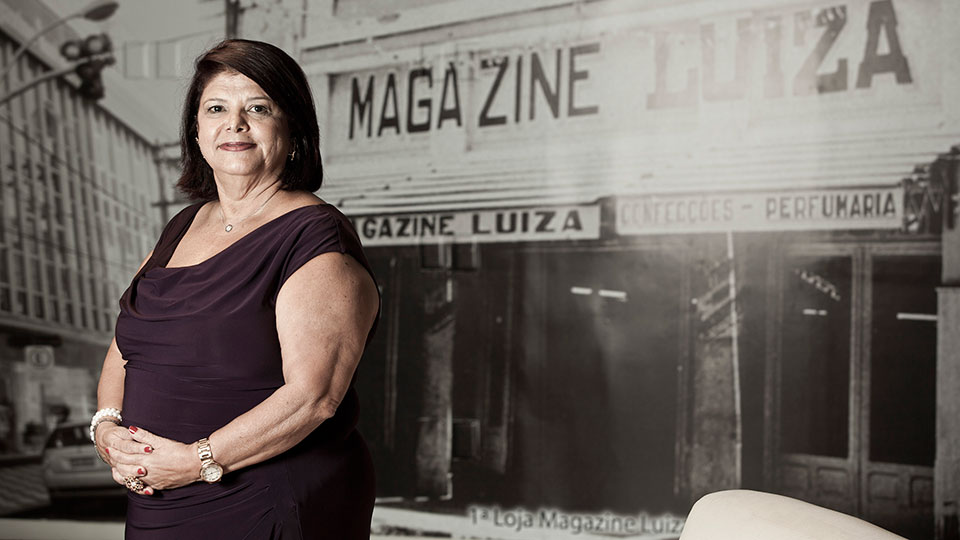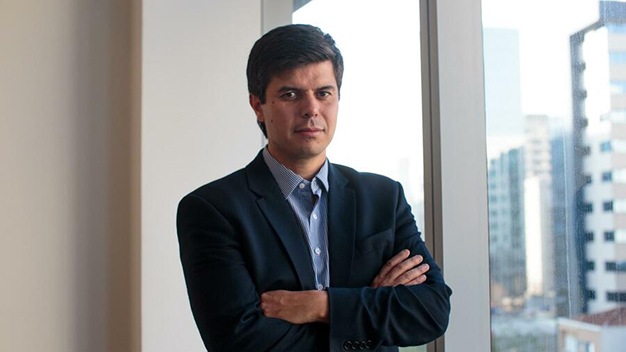RIO DE JANEIRO, BRAZIL – In five years, the shares of family-run retailer Magazine Luiza from the interior of Brazil have increased the most in stock exchange value worldwide. The reason: Mother and son Trajano were already working digitally back when the internet barely existed.
With this impressive achievement, the family-owned company proves impressively that Brazil can be America.
It is a ritual that begins every Monday at 7:45 AM at the São Paulo headquarters of Magazine Luiza, one of Brazil’s largest retail chains. Luiza Helena Trajano, the 67-year-old owner, usually shares the previous week’s results through the company’s satellite network.

At first glance, it looks like the routine of a relaxed, family-run business, even anchored in another era. Magazine Luiza’s headquarters is located deep in the Brazilian province, in Franca, a small town 400 kilometers north of São Paulo.
But appearances are deceiving. According to an analysis of 60,000 shares worldwide conducted by Boston Consulting Group, Magazine Luiza has had its most substantial growth in the last five years. Since December 2015, the shares have gained nearly 20,000 percent in value. BCG not only analyzes price gains and dividends but, above all, evaluates whether price gains are justified.
Luiza Helena Trajano is, in women’s terms, something like Sam Walton of Brazil, founder of the American retailer Walmart. “We embody the domestic culture, and we have conquered the cities with it,” explains Luiza Helena, whose family holds about two-thirds of the shares.
The 67-year-old businesswoman and majority owner started selling washing machines when she was twelve years old in her uncle’s shop. Later, her aunt founded “Magazine Luiza”.
The family left the name chosen by listeners of a local radio contest. From the province, Trajano gradually conquered the cities of Brazil. Within a few years, she built a holding company that was already betting on digital sales channels when there was hardly any internet.
Starting in 1999, it opened digital stores on the outskirts of Brazilian cities where customers could choose products on computer screens. On the one hand, because it is too unsafe and dangerous to run stores filled with electrical appliances there, while on the other, virtual stores functioned as a kind of civic center and created the desired customer loyalty.

In an area where there are no banks, public agencies or professional training, Magazine Luiza offers courses and conferences to customers: cooking, internet, hygiene, English. Everything is free. Customers should feel comfortable in this environment, a mix of shopping mall, youth center, and adult education center. And, of course, they can order from a list of 10,000 items.
So far, salespeople receive a small, fixed salary. Their bonuses are measured by the amount of high-yield products they sell. On the screen they can see which products generate the highest profitability and therefore offer extra income. And they can also track the sales and margin their colleagues make. This creates transparency but also increases competitive pressure among employees.
Because Magazine Luiza was always digital, Trajano could easily combine conventional stores and digital platforms (“Magalu”). “Unlike the competition, there was no need for large investments in logistics,” says investment bank BTG Pactual.
The warehouses distributed throughout Brazil, the sales channels, the digital network within the company: everything was ready for full digitalization. Economists and MBA graduates from Harvard Business School have been researching Trajano’s business model for years. Consultant EY (formerly Ernst & Young) honored the Trajanos with the 2017 World Family Business of the Year award.

Their business model is tailor-made for Brazilian society: with rapid cyclical changes, low purchasing power, dynamic customer desires and high affinity of Brazilians for the internet, with one of the highest smartphone densities in the world. Magazine Luiza has a clear target: the lower and middle classes.
The company knows, like no other in Brazil, how to serve the bottom of the income pyramid market, a market that is traditionally strong in Brazil and serves as a test case for low-income strategies around the world.
In particular, Frederico, son of Luiza Helena, has been driving the group’s digitization since 2000. The 43-year-old economist previously worked as an analyst at Deutsche Bank for four years. He founded LuizaLabs as a digital research lab within the group and began selling on Facebook in 2010, before becoming CEO four years ago, the first man in the third generation of the company.
He calls his digital strategy, “omnichannel.” He explains that Magazine Luiza is one of the few companies in the truly multi-channel world: “We own numerous sales channels, which have the same infrastructure in logistics, marketing, and finance, and we have also made profits from the beginning. Credit Suisse analysts see Magazine Luiza as one of seven companies worldwide that will survive the “retail apocalypse”.
However, Frederico remains true to his roots. “Magazine Luiza will become a digital company, but with stores and human warmth,” he says. And, like his mother, he says: “Employees are the soul of the company.”
Despite competitive pressure on salespeople, employees’ families are invited, for example, to open stores. For twenty years, Magazine Luiza has regularly topped the list of Brazil’s most popular employers. Julio Ribeiro, one of Brazil’s top public relations strategists, says: “Luiza is said to know all her employees by name.”

